Being held less than six months before the World Cup starts in Doha, Qatar’s Minister of Municipality emphasised how the state wanted recyclable materials to be available for making into products as part of a circular economy strategy.
The Minister of Municipality, Dr. Abdullah bin Abdulaziz bin Turki Al-Subaie, said that the organisation of the conference signified “the great interest that the State attributes to the reduction, elimination, proper management and recycling of waste, to be a multi-use source for a number of diverse products, industries and businesses that serve the economy and contribute to preserving the Qatari environment.”
He explained that under the supervision of the Emir of Qatar, His Highness Sheikh Tamim bin Hamad Al Thani, a national programme to deal with solid waste had been prepared.
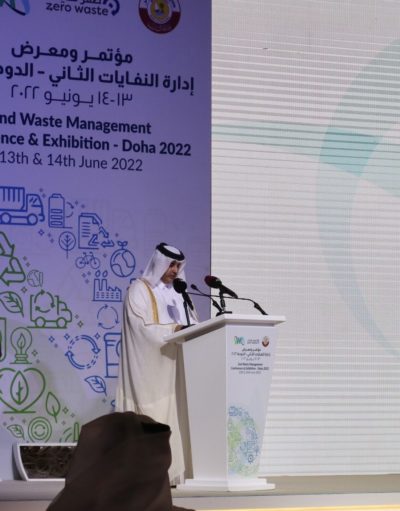
Comprehensive
The Minister explained that a comprehensive strategy to deal with all types of waste produced had been drawn up with the development of an integrated national programme for solid waste underway.
This includes integrated infrastructure with a “strengthening of relationships with the private sector” as well as “raising and consolidating public awareness of the importance of waste reduction and recycling”.
And, Minister Al-Subaie also emphasised that holding the conference and an exhibition supports the idea of community participation to preserve the environment, “encouraging investment, as the conference attracts many governmental institutions, the private sector, and international and regional bodies in this vital and important field.”
Day one of the conference heard from a range of Qatari and other speakers all signifying that change was, and is, on the way.
Science
Patrick Child, deputy director general in the innovation wing of the European Commission, said that the science was clear in terms of global warming and that there had to be immediate action to make the world more sustainable.
Welcoming Qatar’s proposals, he said “there is great potential for circular economies and the application of new technology to waste streams”.
The circular economy approach, noted Mr Child, involves “a highly complex set of process chains including collection”.
A better-performing recycling sector depends on a quality supply of separately collected waste
The EU official then explained how the EU had extended the principle of producer responsibility and how a “better-performing recycling sector depends on a quality supply of separately collected waste”.
Solutions
Qatar’s work on solid waste management and the strategic goal of a circular economy are part of the country’s Vision 2030, explained Engineer Hend Hassan, from the Strategic Projects division at the Ministry of Municipality.
She said that recycling solutions are being sought and that these are being implemented with recycling industries.
Waste is categorised into either hazardous or non-hazardous and then the non-hazardous is categories into five categtories, including household and commercial/industrial. A two bin system is used and this consists of a blue bin for commingled material and a black bin for mixed waste and there are parts of the city where waste is separated at source.
Transfer stations also carry out some sorting and most of what is not recyclable goes to energy.
“A small part goes to landfill, which is in the process of closing,” said Engineer Hassan. And, by 2030 Qatar would like to have a recycling rate of 95%, she said, although conceded this is a ‘very high goal”.
Qatar currently has an ageing landfill site and is in the process of assessing tenders for the construction of a new state of the art facility.
Enthusiasm
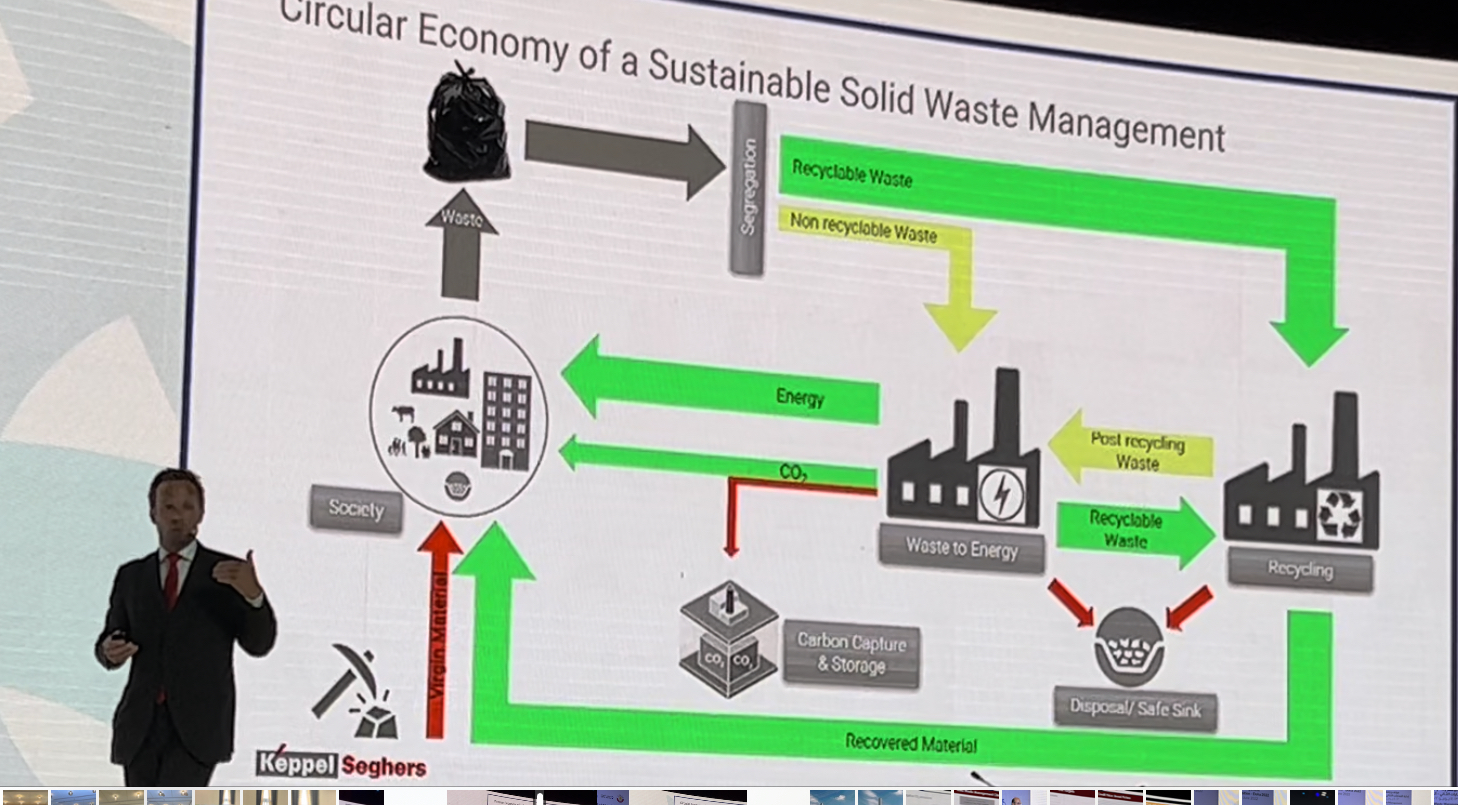
Enthusiasm for the place of energy from waste came from Benoit Englebert, sales and business development manager at Keppel Singhers, Singapore which operates Qatar’s energy from waste plant.
Mr Englebert spoke of the advantage of energy from waste over landfill, saying that landfills can cause contamination and blown plastics, with methane “80 times more harmful than CO2”.
He declared that a circular economy was not possible for every kind of waste, such as contaminated waste and non-recyclable waste where recycling was to expensive or complex and cited shoes and tyres as examples.
“Waste to energy can help reverse climate change by capturing carbon,” said Mr Englebert.
Energy from waste was one of the areas where carbon capture and storage projects may see the issuing of carbon market instruments, the conference was told by the next speaker.
Carbon
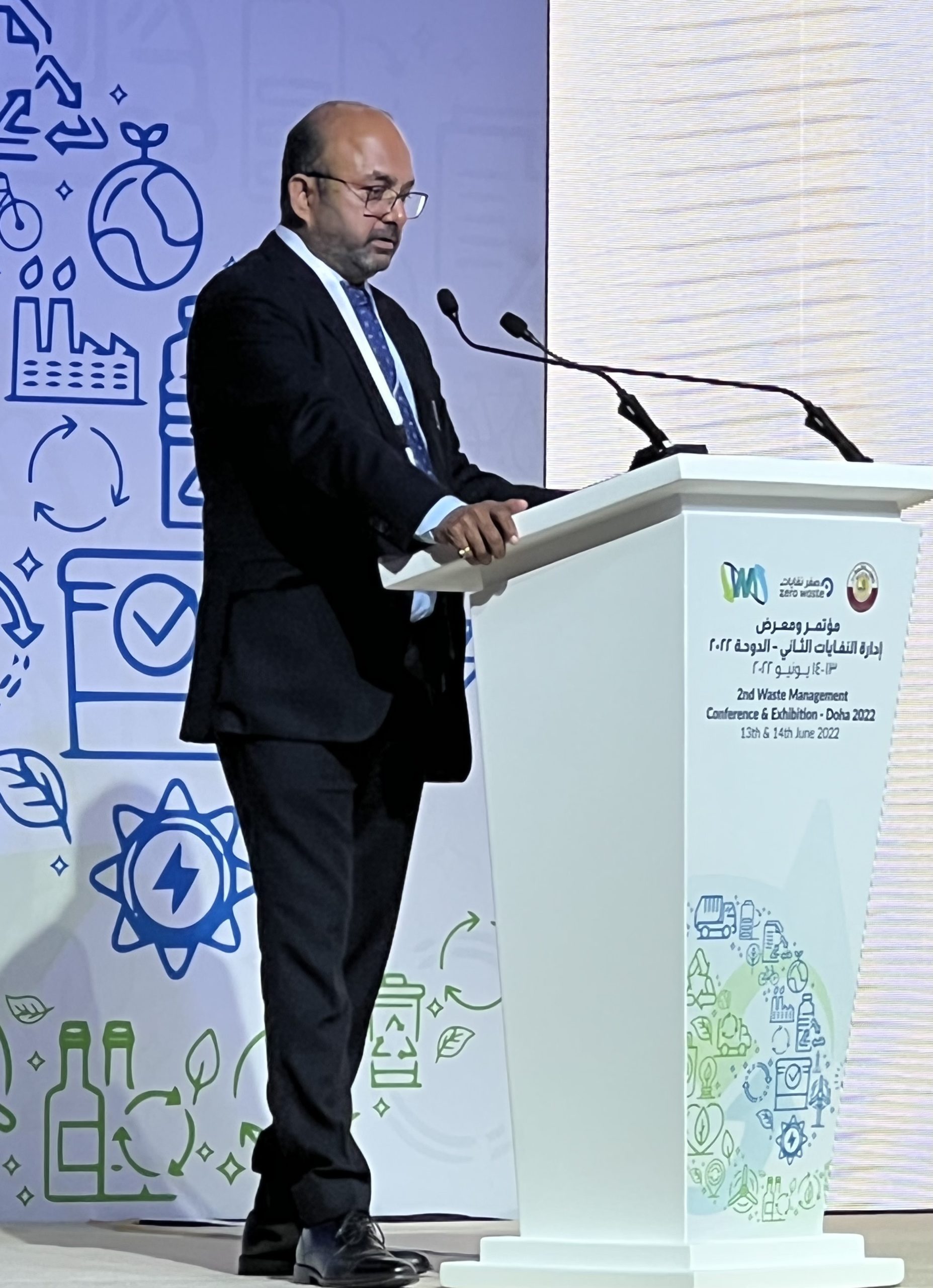
An expert in carbon markets, Kishor Rajhansa, chief operations officer for the Global Carbon Council based in the Gulf, said that 52-58 giga tons were needed to be reduced under the Paris agreement. And, he pointed out that emitters of carbon, such as the aviation industry, were looking at carbon markets to account for saving of carbon.
Mr Rajhansa predicated that there could be 500 million credits by 2032 and that carbon credits could be used to finance recycling projects in Qatar.
Projects that could generate credits where huge in number with many outside of the waste sector but within the waste sector the could include biodiesel and biogas as well as energy from waste where carbon is captured.
Legislation
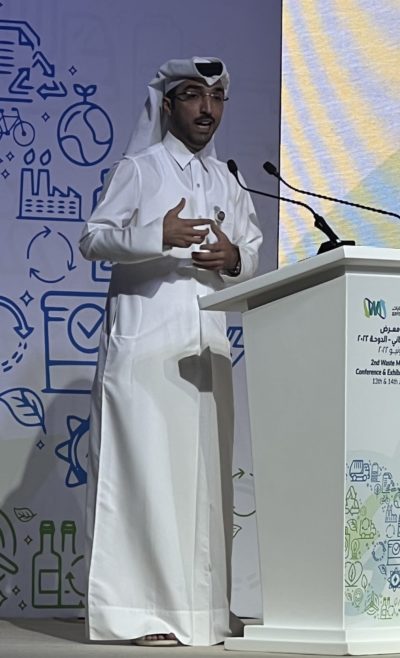
As with the UK and Europe, sustainable waste management has been driven by legislation. The importance of new regulations in waste management and recycling was emphasised by Ahmed Al-Emadi, Director of Legal Affairs at the Ministry of Municipality.
He explained how the Ministry continues to provide regulator tools to help to contribute to the 2030 National Vision. “These laws reflect the trends of the country.. efforts started in placing regulatory tools in 2019 as the first cornerstone of a just law on waste treatment.”
More regulations are now under the “final stages of revision by municipal parties here” said Mr Al-Emadi.
These measures include describing the types of waste that should be treated and recycled and the percentage targets for waste, the issuance of permits for the private waste sector and a number of other topics. The law, he said, has also put in pace “penalties and reconciliations for breaches of law”.
The first regulatory tool had come into force in October 2021 and this clarified the definition of solid waste as recyclable or non-recyclable. It obliges companies, institutions and shops to have the appropriate number of containers to store and hold recycling and waste in a proper manner and to move this waste into treatment stations and plants to recycle them.
Veolia
Thierry Dezenclos, head of Veolia in Qatar, spoke about the importance of having green landfills where the leachate is captured to produce electricity through biogas. But he also emphasised the importance of running landfills well. “A green landfill is not about design, you have to operate it correctly. If that is not the case, the life of your cells could be shortened.”
18R project
The first day of the event also saw the launch of the 18R project, which represents 18 words beginning with the letter R, all signifying actions to boost the environment and recycling.
These were explained by Engineer Jawa M Al-Sulaiti who ran through the words, such as R for raising awareness of waste management and increase the recycling of waste. Other words included reduce, restore, regulate and recruit.
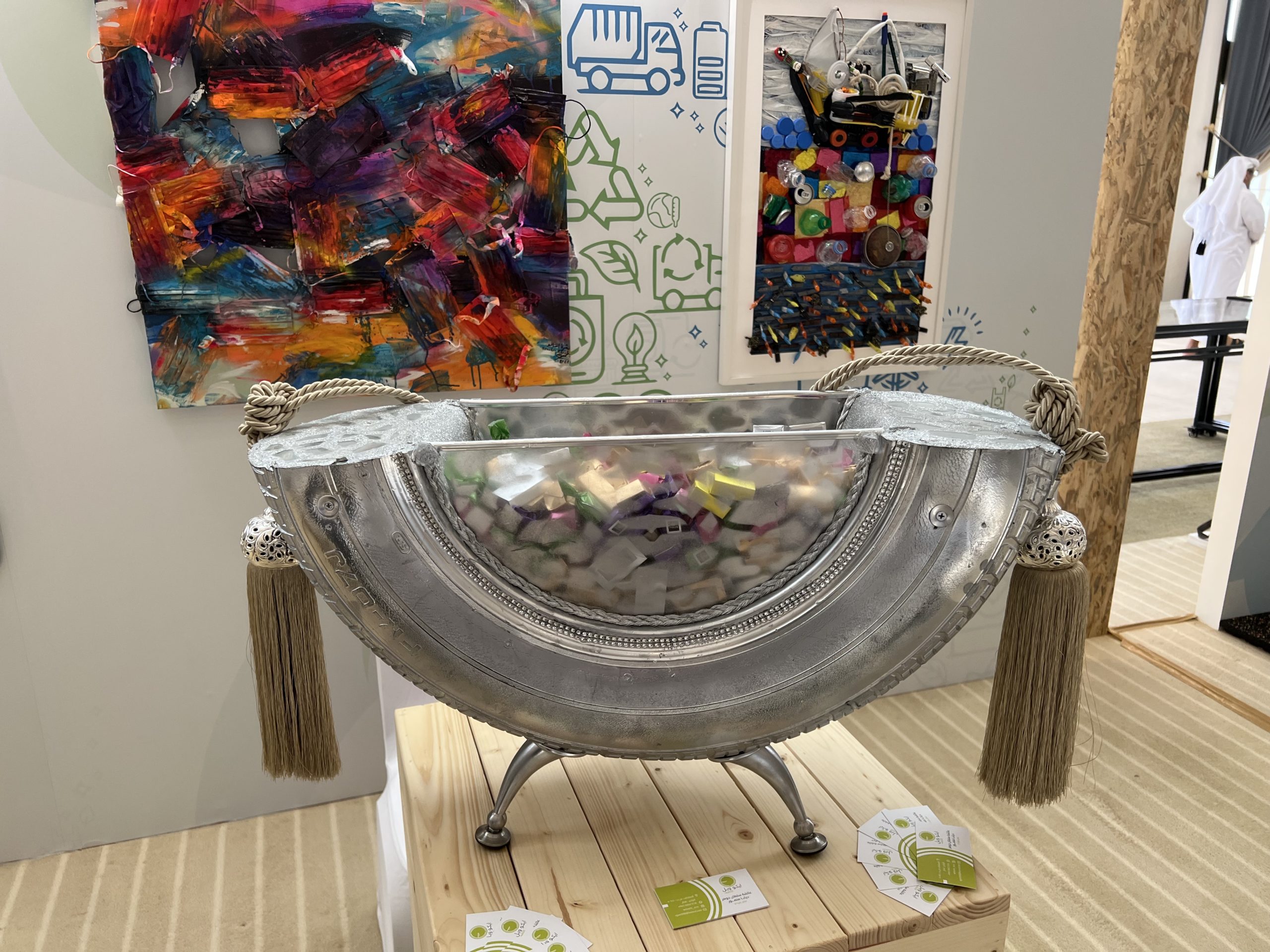
Daniel Ochoa of the the Ministry of Municipality, spoke of how trials were underway into different ways to use wastes by turning them into a product. He gave examples of how wastes were being used to make composite materials such as bottom ash and rubber for making a safety deck material and bottom ash and textiles from tyres used to make thermal wall insulation.
Straw poll
Other points from the day were that in a straw poll of delegates, a number admitted to not fully sorting their waste. There were also concerns expressed that food waste should be tackled more in Qatar, particularly at large gatherings.





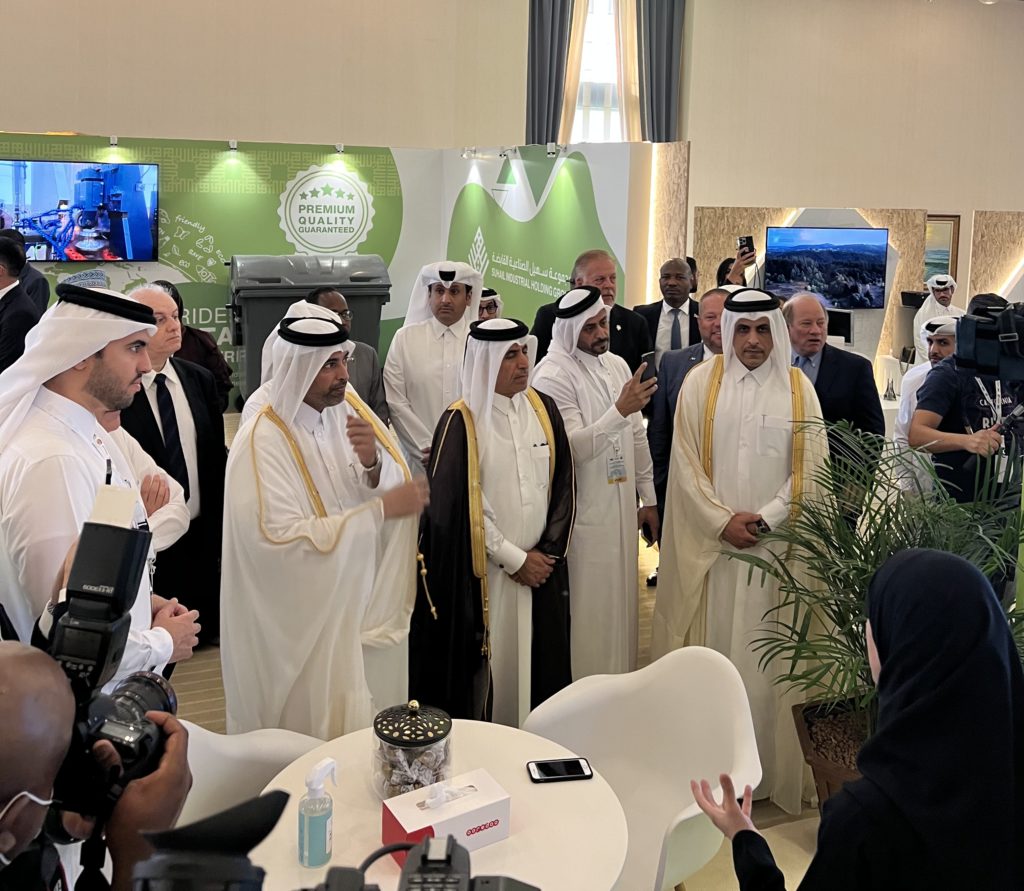

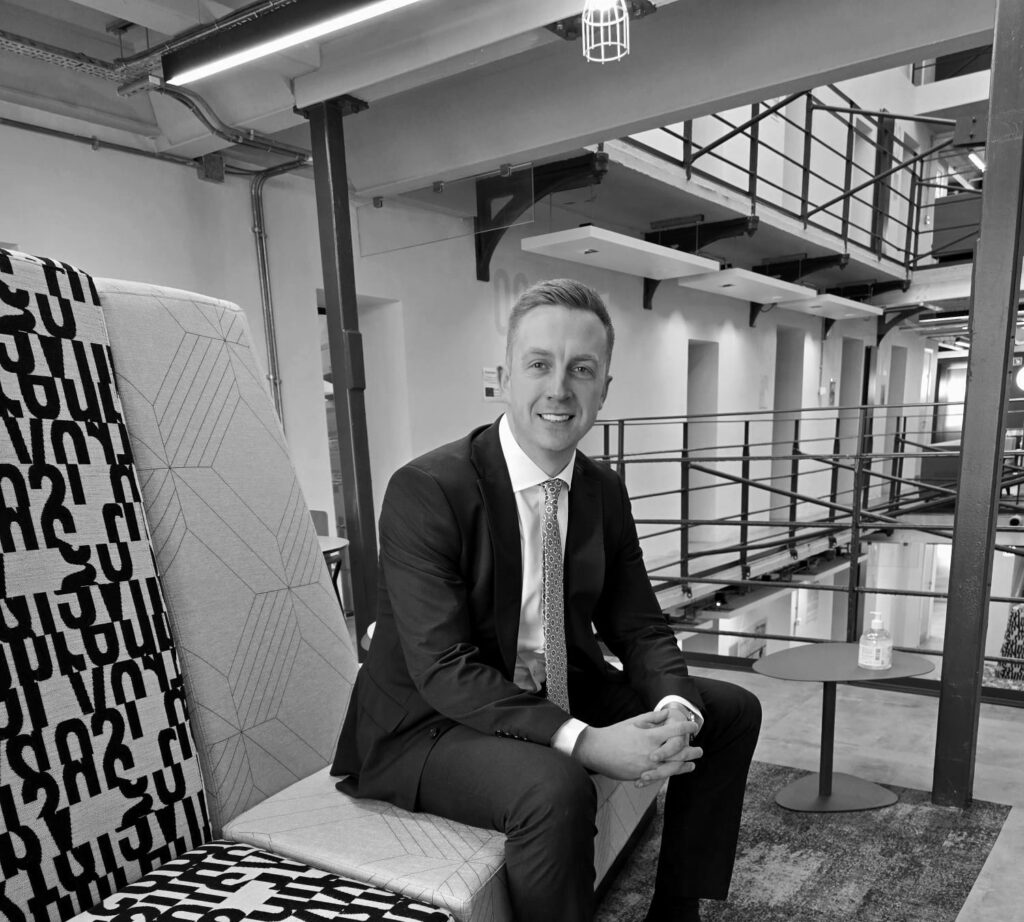
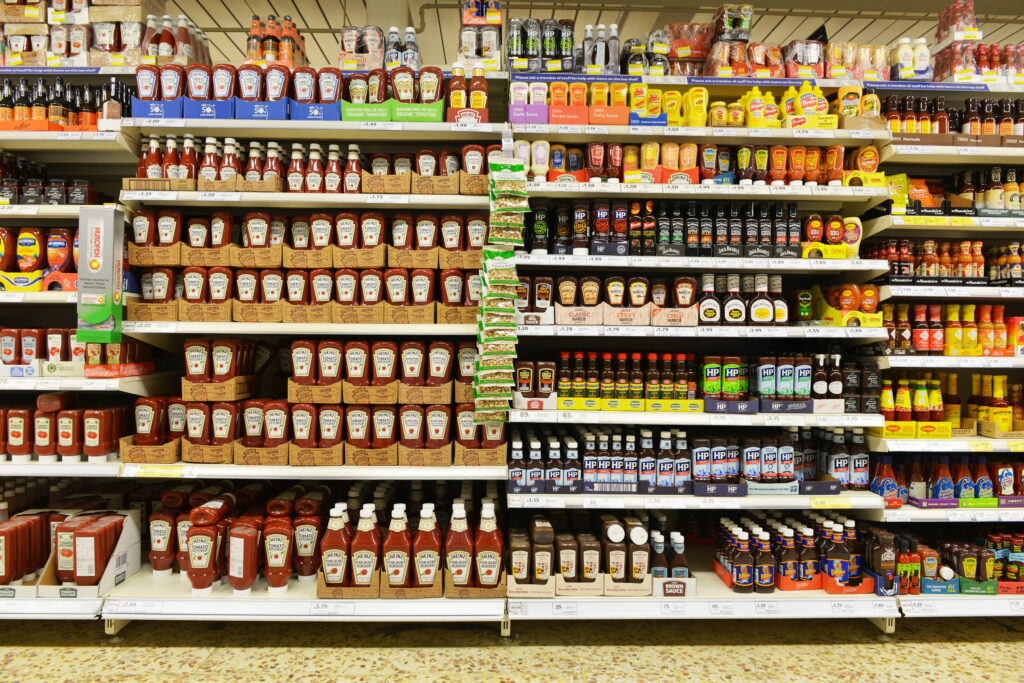
Subscribe for free